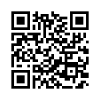PENANAMAN PERILAKU ANTI-PLAGIASI DALAM PERKULIAHAN WRITING FOR ACADEMIC ASSIGNMENTS
Abstract
Artikel ini bertujuan menanamkan sikap anti-plagiasi di kalangan mahasiswa di Jurusan Pendidikan Bahasa Inggris FBS UNY yang tercermin pada pendapat dan hasil tulisan mereka. Penelitian ini dilakukan di sekelompok mahasiswa Jurusan bahasa Inggris UNY Semester IV yang menempuh perkuliahan Writing for Academic Assignments tahun akademik 2015/2016 sebanyak 1 kelas (20 orang, terdiri dari 12 perempuan dan 8 laki-laki). Data diambil dengan teknik observasi terhadap proses tindakan, pemberian kuesioner untuk menjajagi pendapat dan sikap, wawancara untuk keperluan penajaman atau penggalian informasi, dan unjuk kerja menulis karya ilmiah berupa essay dan proposal penelitian. Penelitian ini mampu mengurangi secara signifikan jumlah pelanggaran yang dilakukan dalam penulisan sumber, dari 85% di awal penelitian menjadi 40% di akhir Siklus 1, dan 20% di akhir Siklus 2.
Kata Kunci: anti-plagiasi, kutipan, parafrase, rangkuman
FOSTERING ANTI-PAGIARISM ATTITUDE IN THE SUBJECT OF WRITING FOR ACADEMIC ASSIGNMENTS
ABSTRACT
The article disseminates the results and findings of a study aiming to foster the attitude towards anti-plagiarism among students of the English Education Department of FBS, UNY, as reflected on their opinions and writing products. The study was implemented on a group of semester IV students of the English Education Department of UNY in the academic year 2015/2016 taking the course of Writing for Academic Assignments. The group consisted of 20 students, 12 female and 8 male. The data were collected through a series of observation on the action process, a questionnaire on the respondents’ opinions and ideas, interviews for deeper facts and information, and tasks of writing academic essays and research proposal mini project. The action research stages were carried out through two cycles, each of which was completed in 7 class sessions. This study finally was able to decrease the number of violations and plagiarism in a significant quantity, from initially 85% to 40% by the end of Cycle 1 and to 20% by the end of the study.
Keywords: anti-plagiarism, quotation, paraphrase, summary
Full Text:
PDFReferences
Anney, V. N., & Atanas, M. M. (2015). Student’s Plagiarisms in Higher Learning Institutions in the Era of Improved Internet Access: Case Study of Developing Countries. Journal of Education and Practice. Vol. 6 No. 13.
Bailey, S. (2011). Academic Writing: A Handbook for International Students. New York: Routledge.
Dong, T., & Yue, L. (2015). A Study on Critical Thinking Assessment System of College English Writing. English Language Teaching, 8 (11), 176.
Hjortshoj, K. 2009. The Transition to College Writing (2nd ed.). Boston: Bedford/St. Martins.
Menary, R. 2007. Writing as Thinking. Language Sciences, 29(5), 621-632.
Nurgiyantoro, B. dkk. 2014. Buku Saku Panduan Antiplagiarisme. Yogyakarta: FBS UNY.
Oatley, K., & Djikic, M. 2008. Writing as Thinking. Review of General Psychology, 12(1), 9.
Pecorari, D., & Petrić, B. (2014). Plagiarism in Second-language Writing. Language Teaching, 47(03), 269-302.
Salathe, M. (Ed.), (2008). Integrity in Scientific Research: Principles and Procedures. Bern: Swiss Academies of Arts and Sciences.
DOI: https://doi.org/10.21831/diksi.v25i1.16009
Refbacks
- There are currently no refbacks.
Copyright (c) 2017 Diksi
Jurnal Diksi is published by Faculty of Languages, Arts, and Culture, Universitas Negeri Yogyakarta. It is licensed under a Creative Commons Attribution-ShareAlike 4.0 International License. Based on a work at http://journal.uny.ac.id/index.php/diksi
Our Journal has been Indexed by:
Diksi Journal is published by the Faculty of Languages, Arts, and Culture Universitas Negeri Yogyakarta in collaboration with Himpunan Sarjana Kesusasteraan Indonesia (HISKI)
Supervised by:

2.png)














